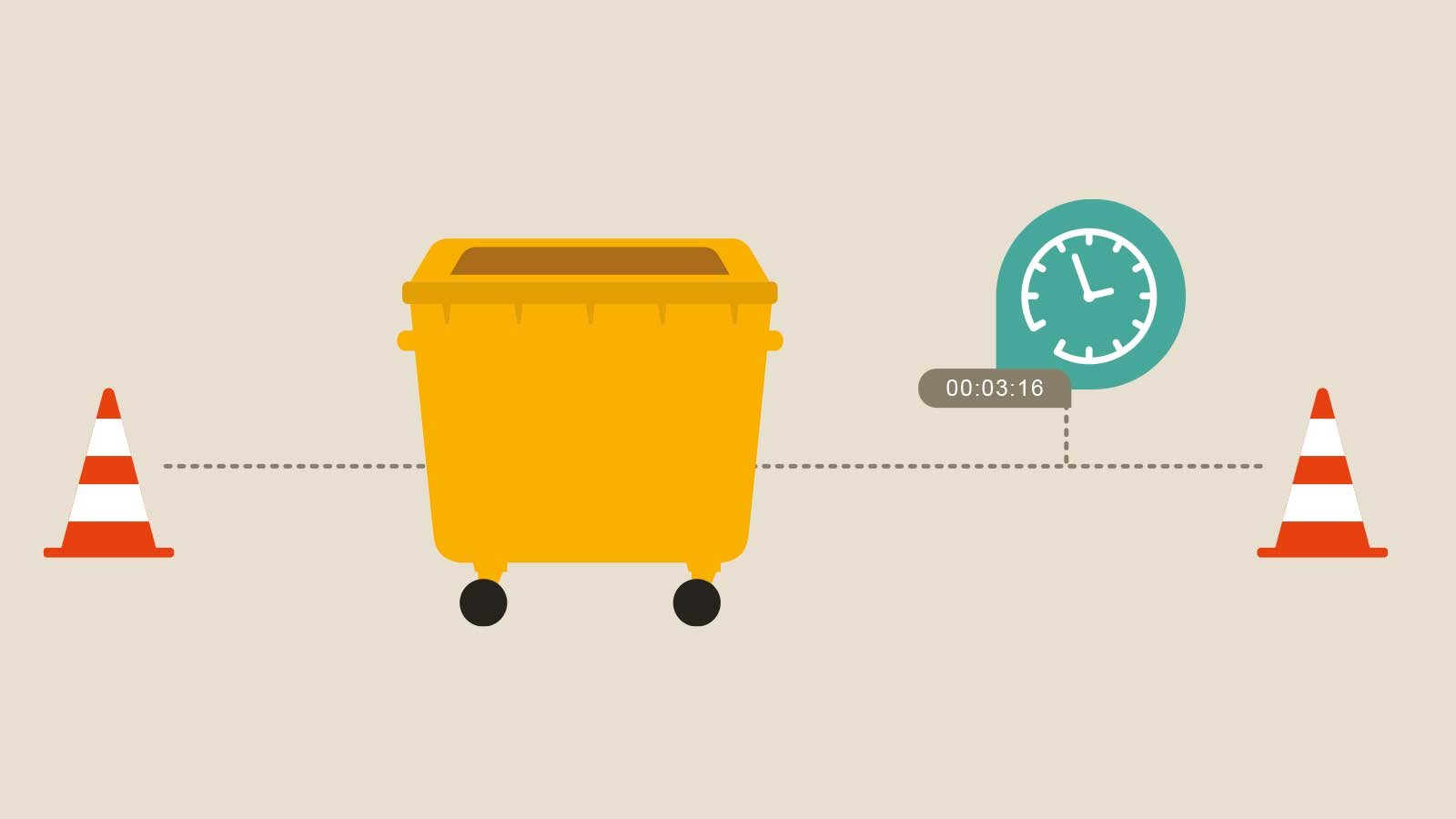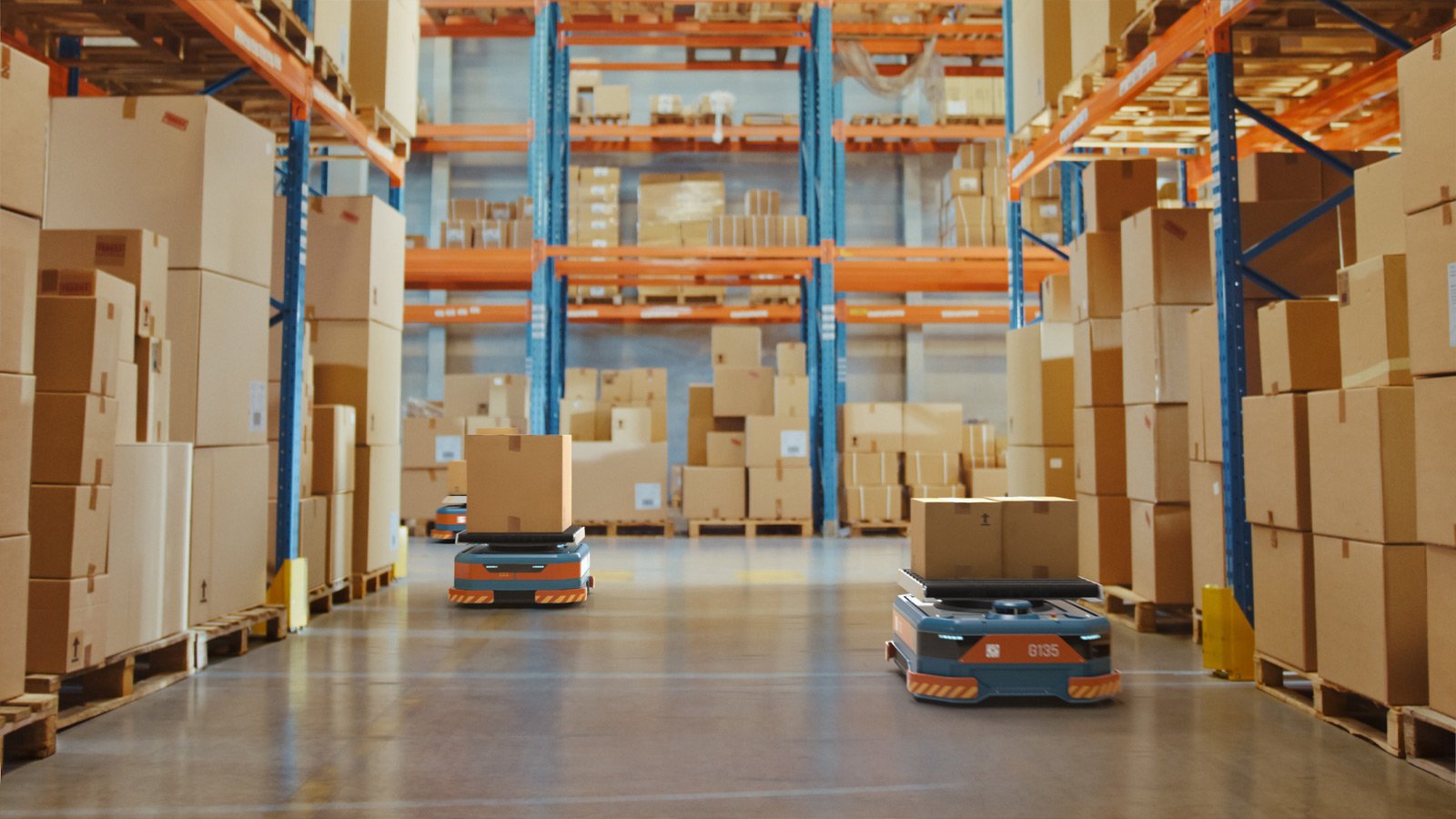Industry 4.0, we are in the thick of it. In our recent history, we know of four major revolutions. The steam engine unleashed the first revolution. The second revolution featured acceleration, thanks to the entry of electricity and steel. The third revolution came with digitalization. We are now in the midst of the fourth revolution.
We also call this smart revolution Industry 4.0. We are all looking for as much automation and smart technology as possible. And we are increasingly noticing this in our daily lives. For example, Artificial Intelligence (AI), robotization and the Internet of Things (IoT) are important parts of our society and this smart revolution.
Physical objects, devices and systems are becoming smarter as they connect to each other via the Internet. With continuous communication, a lot of data is collected, giving important insights into all kinds of processes. These innovations can also help make the logistics sector as efficient as possible.
Industry 4.0 and logistics
Smart supply chains, smart vehicles, ERP systems: in the logistics sector, smart technology is now indispensable. Production, inventory management, transportation, sales, personnel: we want as much insight as possible into every step of the chain.
Smart data give companies a new level of control. The deployment of these innovations is aimed at making the business process as efficient as possible and saving labor time. In logistics, various smart technologies are deployed, think of:
- Big data and AI analytics: artificial intelligence is applied to collected data to gain insight into certain parts of the supply chain. For example, how can smart data help with efficient planning?
- Augmented reality: AR systems are used to visualize complicated processes. In this way, effective solutions can be sought. But augmented reality is also used, for example, in assembly or service training. This more efficient training leads to higher quality and more safety. Repair time is also accelerated thanks to AR visualization, which shortens system downtime.
- Autonomous robots: the use of robots in heavy or high-risk work promotes the flow of processes. Consider, for example, drones that scan inventory in a warehouse. But also the deployment of robots in sorting waste streams.
- Autonomous driving: self-driving vehicles are an interesting development in the tight labor market. Artificial intelligence also improves traffic safety.
Smart innovations with waste
Not only in the logistics sector, but also in the field of waste management, Industry 4.0 offers enormous opportunities. Smart innovations in waste are an important part of the raw material transition, which revolves around the preservation and reuse of raw materials. In a circular economy, smart Industry 4.0 innovations and waste are therefore inextricably linked. And that's something every organization can work with.
Some examples of smart technologies that can be deployed in waste management:
- Container tracking: With our innovative container tracking, we measure your company's complete waste logistics. The smart data enables optimization of the waste process. This saves your employees time, which they can spend on their primary task. Optimal waste management also reduces your direct and indirect waste costs.

- Smart waste compactors: this compactor is remotely adjustable. It also indicates when the container is full and when repairs are needed.
- Automated Guided Vehicle (AGV): these traveling robots speed up and improve your internal waste logistics.
- Smart checkers: these prevent contamination of waste streams. Thanks to smart technology, the waste container checks whether the waste deposited belongs to the correct stream. This prevents rejection of the waste by the processor and actually increases the separation rate of your waste.
- Connection weighbridge waste parties: these tools allow waste transporters to automatically weigh waste. Thanks to smart links, this data gives immediate insight into the correct financial settlement.
- Data and analysis: smart analysis of data helps in prognosticating waste flows. For example, expected peak loads can be linked to smart planning to avoid unnecessary transportation costs.
Milgro, waste and Industry 4.0
What is Milgro doing with smart technologies from Industry 4.0? We continuously innovate and stay up-to-date. Smart data forms the basis of our services. By providing intelligent data, we offer crucial insights into waste processing and raw material flows.
Milgro enables working with forecasts and ecological KPIs in the field of waste. We also continue to develop further in digitizing the waste process, using smart technologies.
Stay informed
Keep up to date with all the new developments? Follow us on LinkedIn or subscribe to our newsletter. Are you curious about what Milgro can do for your operations and waste process? Then get in touch.










